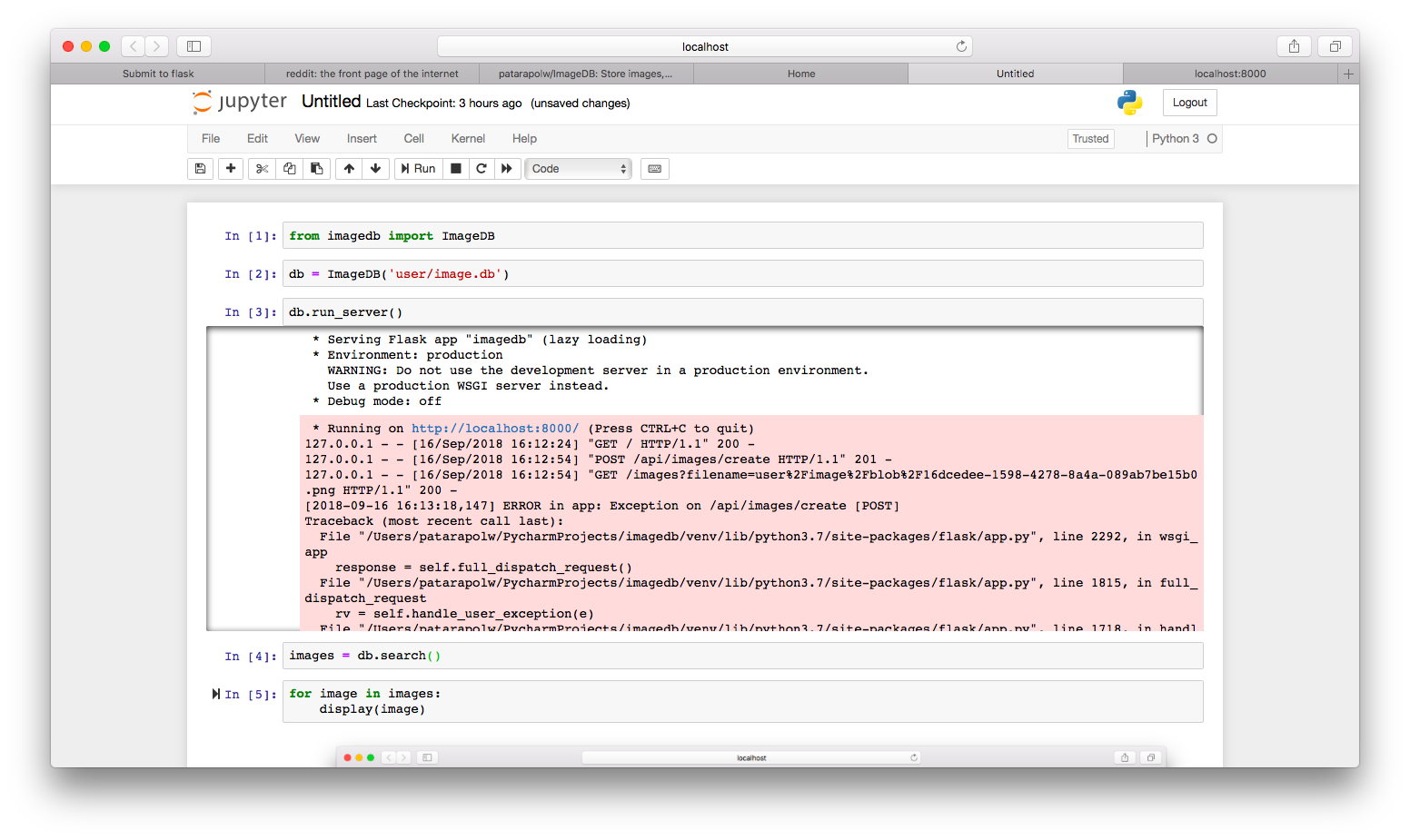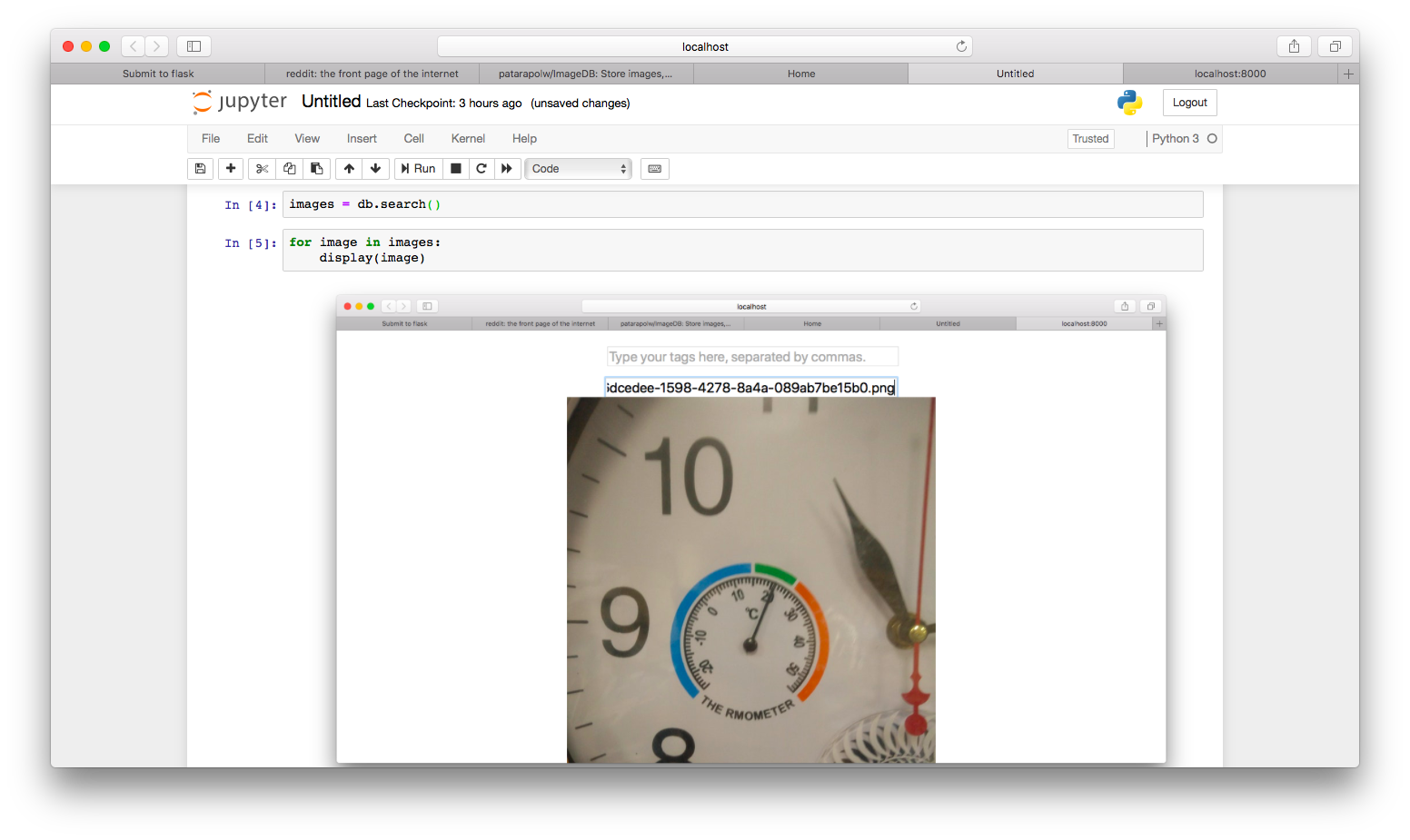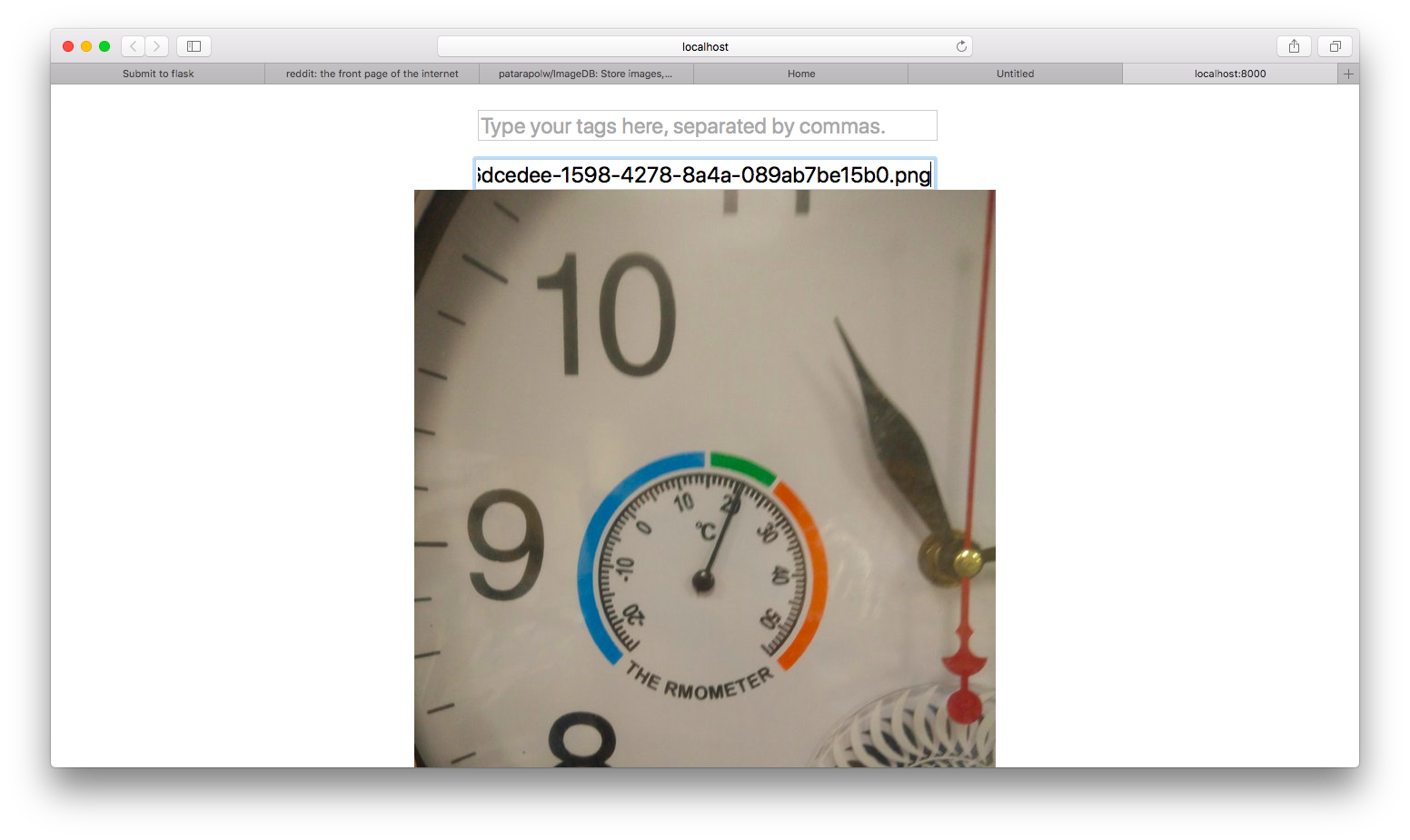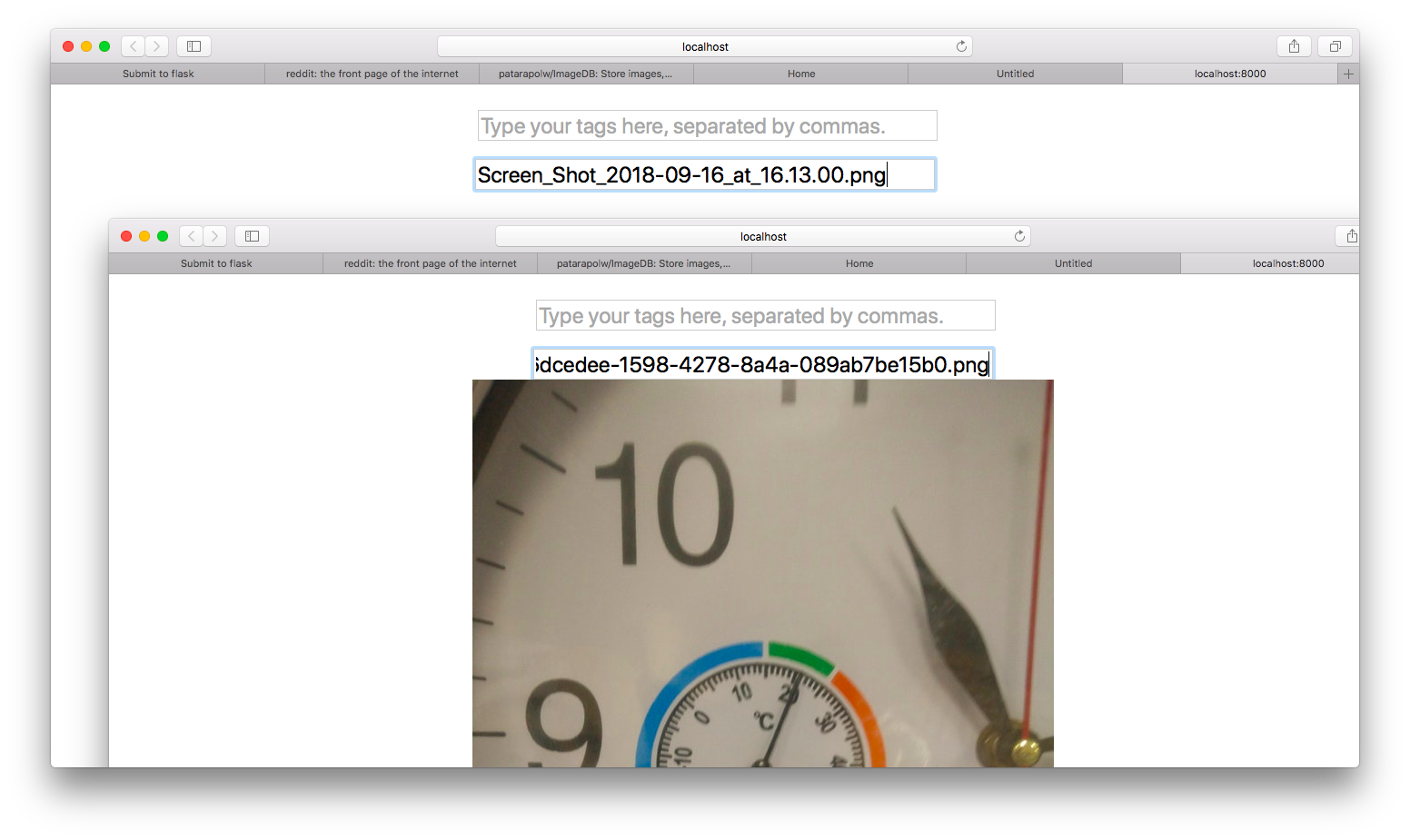
Product
Introducing Webhook Events for Alert Changes
Add real-time Socket webhook events to your workflows to automatically receive software supply chain alert changes in real time.
imagedb
Advanced tools
Store images, especially from Clipboard, in a database, and spin an image server (for usage in Jupyter Notebook).
Store images, especially from Clipboard, in a database, and spin an image server (for usage in Jupyter Notebook).
$ pip install imagedb
Or
poetry add imagedb --path path/to/imagedb/folderIn a Python script (outside Jupyter Notebook).
from imagedb import ImageDB
ImageDB('images.db').runserver()
# Then, go to `http://localhost:8000` in your browser to register an image (from the clipboard).
In Jupyter Notebook
>>> from imagedb import ImageDB
>>> idb = ImageDB('images.db')
>>> idb.last()
# The latest image in the server will be shown. `idb.last(5)` is also supported.
>>> from IPython.display import display
>>> for image in idb.search(tags='bar'):
... display(image)
# All images corresponding to the tag 'bar' will be shown.




FAQs
Store images, especially from Clipboard, in a database, and spin an image server (for usage in Jupyter Notebook).
We found that imagedb demonstrated a healthy version release cadence and project activity because the last version was released less than a year ago. It has 1 open source maintainer collaborating on the project.
Did you know?

Socket for GitHub automatically highlights issues in each pull request and monitors the health of all your open source dependencies. Discover the contents of your packages and block harmful activity before you install or update your dependencies.

Product
Add real-time Socket webhook events to your workflows to automatically receive software supply chain alert changes in real time.

Security News
ENISA has become a CVE Program Root, giving the EU a central authority for coordinating vulnerability reporting, disclosure, and cross-border response.

Product
Socket now scans OpenVSX extensions, giving teams early detection of risky behaviors, hidden capabilities, and supply chain threats in developer tools.